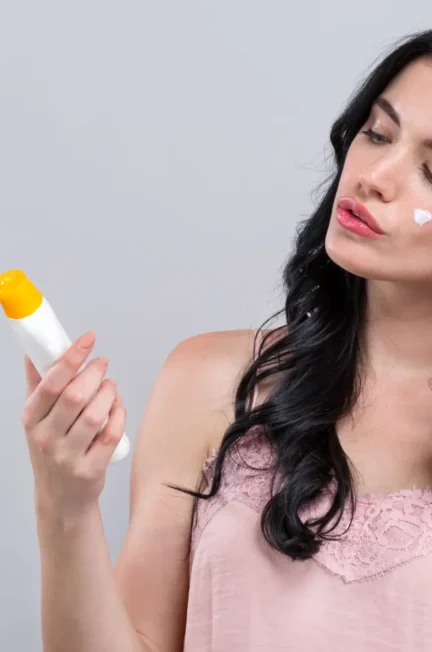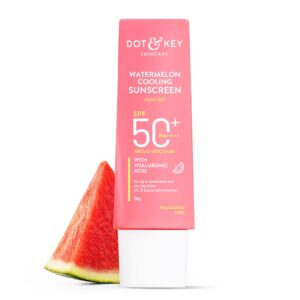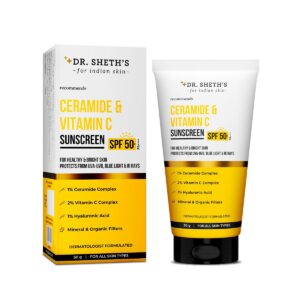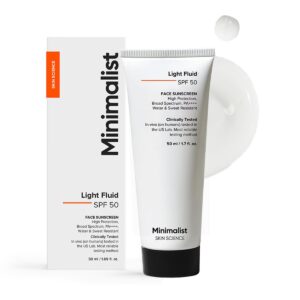
Are you overwhelmed by the dozens of sunscreen options on the shelf and wondering which one is right for your Indian skin tone and climate? You’re not alone.
Choosing the right sunscreen is essential—not just for beach days but for everyday protection from tanning, pigmentation, and early ageing.
In this blog, we’ll break down exactly what you need to know about picking the best sunscreen for Indian skin based on SPF, PA rating, formula, and real-world effectiveness.
Why Sunscreen Matters for Indian Skin?
India’s tropical climate, with long hours of intense sunlight and high humidity in most regions, makes sun protection non-negotiable. However, Indian skin tones (usually from Fitzpatrick type IV to VI) are more prone to:
- Hyperpigmentation
- Tanning
- Melasma
- Uneven skin tone
Contrary to popular myth, melanin does not offer complete protection. In fact, Indian skin is highly susceptible to UV-A damage which accelerates ageing and pigmentation.
What to Look for in a Sunscreen for Indian Skin?
1. SPF Rating: Stick to SPF 30 or Above
SPF (Sun Protection Factor) measures UV-B protection.
- SPF 30 blocks 97% of UVB rays
- SPF 50 blocks 98%
For daily wear in India, SPF 50 is ideal, especially if you’re out for more than 30 minutes.
2. PA Rating: The More “+”, the Better
PA rating indicates protection against UV-A rays.
- PA+ = Some UVA protection
- PA++++ = Best UVA protection
Look for PA+++ or PA++++ for Indian sun exposure.
3. Texture: Gel vs Cream vs Spray
- Oily skin? Go for gel-based or water-based sunscreens (e.g., minimalist or Neutrogena Hydro Boost SPF).
- Dry skin? Creamy sunscreens with moisturising ingredients like ceramides or hyaluronic acid are great.
- Sensitive skin? Choose fragrance-free mineral sunscreens with zinc oxide.
4. White Cast: Yes or No?
Many sunscreens leave a white cast, especially on medium to deeper skin tones. Look for formulas that are:
- Invisible/Transparent
- Tinted for brown skin
Indian brands like Dot and key Sunscreen and Dr. Sheth’s Sunscreen and others are known for minimal white cast.
5. Ingredients to Love
- Niacinamide – Helps with pigmentation
- Zinc oxide & titanium dioxide – Physical blockers, great for sensitive skin
- Avobenzone or Tinosorb S – Strong chemical UVA blockers
My Top 3 Sunscreen Picks for Indian Skin.
1. Dot & Key Watermelon Hyaluronic Cooling Sunscreen SPF 50 PA++++ (Tinted)
Dot & Key Watermelon Cooling Sunscreen
- Lightweight mousse-like tinted formula
- Evens out skin tone with zero white cast
- Hydrates with hyaluronic acid & watermelon enzymes
- Ideal for daily use under makeup for mainly oily skin and combination skin.
2. Dr. Sheth’s Ceramide & Vitamin C Sunscreen SPF 50+ PA+++
Dr. Sheth’s Ceramide & Vitamin C Sunscreen
- Dermatologist-formulated for Indian skin
- Contains ceramides + vitamin C for barrier repair and brightening
- Fragrance-free, suitable for sensitive & acne-prone skin
- Leaves minimal white cast, blends smoothly
- Ideal for all skin type
3. Minimalist SPF 50 PA++++ Multi-Vitamin Sunscreen
- Ultra-light, gel-based sunscreen
- Loaded with niacinamide, vitamin B5, and E
- Non-comedogenic, zero white cast
- Great for oily to combination skin types
- Ideal for all skin type
How to Use Sunscreen Properly?
- Apply as the last step of your skincare (before makeup).
- Use 2 fingers worth of product to cover your face and neck.
- Reapply every 2-3 hours if outdoors or sweating.
- Don’t forget ears, neck, hands—often overlooked areas.
The best sunscreen for Indian skin is the one you’ll actually wear every single day. Pick a texture that suits your skin, a formula that blends well with your tone, and a brand that respects the needs of Indian weather and skin types.
Found this guide helpful? Don’t forget to check out our upcoming blogs, and follow GlamUpEdge over social media accounts for real skincare reviews that suit brown skin, budgets, and Indian summers!
FAQs
Q1: Can I use sunscreen at night?
No. Sunscreen is meant for UV protection and isn’t needed after dark.
Q2: Which sunscreen works best under makeup?
Look for mattifying sunscreens like Minimalist gel sunscreens that don’t pill under foundation.
Q3: How early should I apply sunscreen before stepping out?
Apply 15-20 minutes before sun exposure for optimal absorption.
Q4: Can I use body sunscreen on my face?
Not recommended. Facial skin is more delicate. Use non-comedogenic facial sunscreens.
Q5: Is sunscreen safe for teenagers or young skin?
Yes. In fact, starting early helps prevent long-term sun damage. Choose gentle, fragrance-free options.
Disclaimer: The content provided on this blog is for informational purposes only and reflects personal opinions and research. Any product reviews or skincare suggestions mentioned are not intended as medical advice. Please consider your individual skin type and sensitivities before trying any new products. For best results and safety, we strongly recommend consulting with a qualified dermatologist or skincare professional before incorporating new products into your routine.
This post may contain affiliate links which means I may receive a commission for purchases made through links. Learn more on my Affiiliate Disclosure page.






